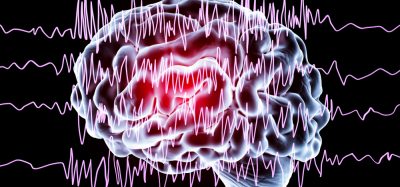What immuno-oncology research can tell us about COVID-19
Posted: 11 June 2020 | Dr Jing Watnick (Vigeo Therapeutics) | No comments yet
Dr Jing Watnick discusses how lessons learnt from cancer immunotherapy treatments could be applied to the development of COVID-19 therapies.
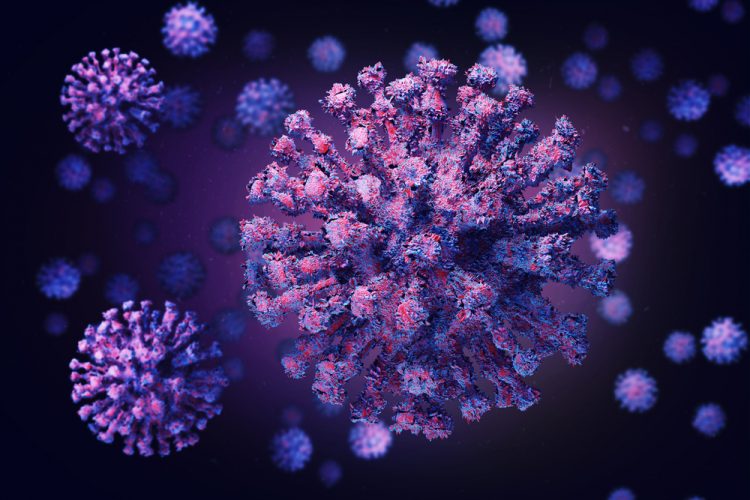

While there is still much to be learned about COVID-19, it is known that the immune system plays a critical role in the progression of many of the most life-threatening symptoms in patients with the novel coronavirus. Symptoms such as cytokine storms and acute respiratory distress syndrome (ARDS) are driven by the excessive release of inflammatory cytokines that can overwhelm and harm organs as well as block the immune system’s ability to find and kill infected cells. As such, drugs that block immune suppression and blunt the production of inflammatory cytokines could have tremendous benefits in restoring the immune balance necessary to alleviate some of the deadliest COVID-19 symptoms.
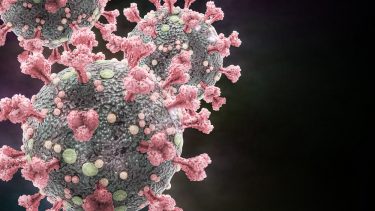

Approaches currently being explored
…the biopharma industry is rising to the challenge of testing and developing potential therapies for COVID-19″
Aside from remdesivir, no antivirals have been shown to provide clinical benefit against COVID-19 at present. Other supportive agents, for example, blockade of one of the components of an IL-6 overactive cytokine response, do not yet have consistent and clinically-proven beneficial results from controlled trials. Agents such as corticosteroids, anticoagulants, immunoglobulin, nitric oxide and interferons are being evaluated in ongoing clinical trials. Additionally, convalescent plasma, a form of passive immunotherapy, has been trialed in over 18,000 patients as of 1 June, according to the Mayo Clinic. While this treatment appears to be safe, its efficacy is not yet clear as the vast majority of patients who received it have had severe symptoms and were gravely ill.2
Biomarkers aren’t just supporting drug discovery – they’re driving it
FREE market report
From smarter trials to faster insights, this report unpacks the science, strategy and real-world impact behind the next generation of precision therapies.
What you’ll unlock:
- How biomarkers are guiding dose selection and early efficacy decisions in complex trials
- Why multi-omics, liquid biopsy and digital tools are redefining the discovery process
- What makes lab data regulatory-ready and why alignment matters from day one
Explore how biomarkers are shaping early drug development
Access the full report – it’s free!
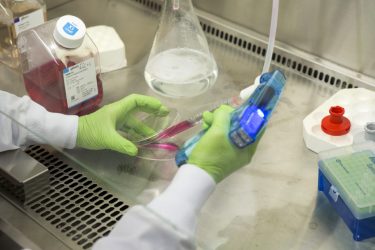

[Credit: Vigeo Therapeutics].
While there has been an incredible surge in clinical trials over the past few months, several problems related to trial design and interpretation have emerged. The urgency of the COVID-19 pandemic has resulted in the initiation of many trials that are uncontrolled and provide only anecdotal evidence of any benefit – or a lack thereof. Moreover, the target population for many of these agents are hospitalised patients, but the process of determination for the subjects who will benefit most is complex and has not yet been established. Lastly, although initial vaccination data appear hopeful, the availability of a vaccine that is safe and results in productive immunity against SARS-CoV-2 for the young, elderly and those at most risk appears to be many months away, at best.
Both cancer and COVID- 19 hijack the immune system
In viral infections such as COVID-19, the normal immune response is a balanced and co-ordinated attack with a tightly orchestrated resolution phase once the virus is cleared. In COVID-19 and cancer – which likely have parallel but not identical ways of misdirecting the immune system – the body’s response may be ‘stuck’ in a proinflammatory state which, in the case of an acute viral infection, can lead to cytokine storms and severe damage to the surrounding tissue while not allowing destruction of the virus. Cancer however, is slightly different, because malignant cells grow slowly (usually over a period of many years before detection) and this longstanding proinflammatory state does not cause surrounding tissue destruction, but rather exhausts the immune system which then ‘tolerates’ the growing tumour. In both instances, the immune system has been diverted from its natural course. One key controller mechanism, a substance which the body naturally produces, is thrombospondin 1 (Tsp-1).
Tsp-1 modulates the immune response in ways that may be beneficial to both COVID-19 and cancer patients. For example, Tsp-1 is a potent endogenous inhibitor of new blood vessel formation. A recently published study revealed that the lungs of patients who died from COVID-19 had brisk angiogenesis (new blood vessel formation).3-5 In cancer, tumours cannot grow without a new blood supply and anti-angiogenic drugs have been shown to be successful at treating cancer – several have already been approved for this use. Additionally, in severe COVID-19, there is an abundance of pro-inflammatory macrophages that help to divert the normal immune response.6 Moreover, a second cell type that potently suppresses the immune response, myeloid derived suppressor cells (MDSCs), have been found at elevated levels in the lungs of COVID-19 patients.7 These results add mechanistic insight into the findings that cytotoxic T cells are decreased and regulatory T cells (Tregs) are increased in the circulation of COVID-19 patients. The same conclusions have been reported for cancer. Tsp-1 can modify these cells and may be able to rebalance and focus the immune response on a virus or cancer cell.
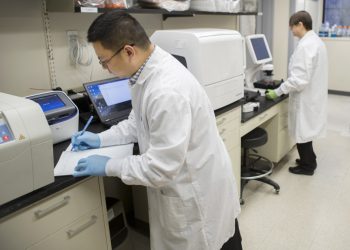

[Credit: Vigeo Therapeutics].
Based on these findings, Vigeo Therapeutics is exploring the use of a TSP-1 inducer named VT1021 to inhibit COVID-19 hyperinflammation development. VT1021 stimulates Tsp-1 in MDSCs that are recruited to the lungs and livers of patients, as has been demonstrated in patients and pre-clinical models of multiple cancer types.8,9 The increased Tsp-1 that subsequently accumulates in these tissues mediates the reprogramming of inflammatory macrophages to pro-phagocytic macrophages.10 By reprogramming these two potent suppressors of the immune response, VT1021 can prevent or suppress cytokine storms, as Tsp-1 is a negative regulator of pro-inflammatory cytokines including IL-6, TNFα, IL-1β, IL-2 and IL-10.11-14 Thus, there is a good rationale to believe that the optimum time to administer a Tsp-1 inducer would be when hospitalised patients present with mild to moderate COVID-19; in other words, patients who seek help after an early infection but before irreversible pulmonary and other organ system damage has occurred.
Thankfully, the biopharma industry is rising to the challenge of testing and developing potential therapies for COVID-19 patients and drawing on a deep bench strength of scientific innovation. It may be that everything we know about cancer and the way it corrupts the body’s immune defense system could lead us to a new therapeutic that can stop cytokine storms and ARDS before these become life-threatening to patients.
About the author
Dr Jing Watnick is a co-founder of Vigeo and leads the company as its President and Chief Executive Officer. She has more than 20 years of experience in the pharmaceutical industry, including roles in programme and portfolio management, strategic planning, business development, alliance management and pre-clinical and clinical research. Prior to the launch of Vigeo, Dr Watnick was a programme lead at Tesaro, Inc., where she directed the Niraparib programme through Phase III registration trials in ovarian and breast cancer. She also served as a programme and portfolio leader at Alexion Pharmaceuticals and before this led global programme teams at Novartis Oncology.
References
- 2020 Huang, C. et al. Clinical features of patients infected with 2019 novel coronavirus in Wuhan, China. Lancet 395, 497–506; 2020 Zhou Lancet)
- Bloch, E.M. et al. Deployment of convalescent plasma for the prevention and treatment of COVID-19. J Clin Invest 130, 2757-2765 (2020).
- Ackermann, M. et al. Pulmonary Vascular Endothelialitis, Thrombosis, and Angiogenesis in Covid-19. N Engl J Med (2020).
- Hariri, L. & Hardin, C.C. Covid-19, Angiogenesis, and ARDS Endotypes. N Engl J Med (2020).
- Teuwen, L.A., Geldhof, V., Pasut, A. & Carmeliet, P. COVID-19: the vasculature unleashed. Nat Rev Immunol (2020).
- Merad, M. & Martin, J.C. Pathological inflammation in patients with COVID-19: a key role for monocytes and macrophages. Nat Rev Immunol (2020).
- Bordoni, V. et al. An inflammatory profile correlates with decreased frequency of cytotoxic cells in COVID-19. Clin Infect Dis (2020).
- Catena, R. et al. Bone marrow-derived Gr1+ cells can generate a metastasis-resistant microenvironment via induced secretion of thrombospondin-1. Cancer Discov 3, 578-589 (2013).
- Kang, S.Y. et al. Prosaposin inhibits tumor metastasis via paracrine and endocrine stimulation of stromal p53 and Tsp-1. Proc Natl Acad Sci U S A 106, 12115-12120 (2009).
- Martin-Manso, G. et al. Thrombospondin 1 promotes tumor macrophage recruitment and enhances tumor cell cytotoxicity of differentiated U937 cells. Cancer Res 68, 7090-7099 (2008).
- Contreras-Ruiz, L., Regenfuss, B., Mir, F.A., Kearns, J. & Masli, S. Conjunctival inflammation in thrombospondin-1 deficient mouse model of Sjogren’s syndrome. PLoS One 8, e75937 (2013).
- Punekar, S. et al. Thrombospondin 1 and its mimetic peptide ABT-510 decrease angiogenesis and inflammation in a murine model of inflammatory bowel disease. Pathobiology 75, 9-21 (2008).
- Tatematsu, Y. et al. Thrombospondin-1 Is Necessary for the Development and Repair of Corneal Nerves. Int J Mol Sci 19 (2018).
- Velasco, P. et al. The angiogenesis inhibitor thrombospondin-1 inhibits acute cutaneous hypersensitivity reactions. J Invest Dermatol 129, 2022-2030 (2009).
Related topics
Disease Research, Drug Development, Drug Targets, Immuno-oncology, Immuno-oncology therapeutics, Immunotherapy, Oncology, Research & Development, Targets, Therapeutics
Related conditions
Cancer, Coronavirus, Covid-19
Related organisations
Vigeo Therapeutics






